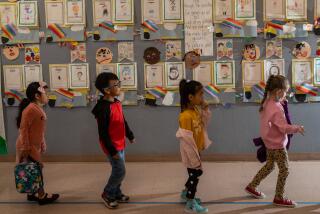Unspeakable and Unprintable Words
Recently, we had as a houseguest a lovely young Englishwoman, the daughter of friends of ours who live in Hampshire, England, in a house called White Ladies. It was so named because the woman who lived there in the 19th Century had a herd of white cattle that she referred to as her white ladies. Our guest, Belinda Brooke, is working toward an advanced degree at the University of Edinburgh and had been working in the United States--mostly San Francisco--all summer.
While Belinda was in the kitchen with me, I dropped a filter paper full of wet coffee grounds on the floor and mutter what was once called an âunprintable word.â I apologized for my language, and she assured me that she and her friends used words that would make mine pale into Louisa May Alcottland. I wasnât surprised. Ever since the âfree speechâ movement that started in Berkeley in the â60s, nothing has been unprintable.
We talked a bit about language, and Belinda told us that some years ago, the headmistress of her boarding school had quite had it with the dreadful language of her otherwise upper-class young ladies. She gathered the girls for a jolly old dressing down.
âYou young ladies are indulging in the sort of talk usually reserved for barrack rooms and disreputable foreign saloons,â she said. âFrom now on, your swearing will be limited to Damn! Blast! and, on special occasions, Bloody hell! â
I imagine a scene in which one of the young ladies exclaims, âBloody hell!â and the headmistress overhears her and cries, âCecily!â
âOh, sorry, Maâam,â says Cecily. âItâs my 16th birthday.â
âOh, I say!â says the headmistress. âA special occasion, indeed! Happy birthday, dear. And carry on!â
Todayâs âdirty,â âunprintableâ language seems to be racial epithets--a more appropriate object of our censorious scorn than most of the older taboos, I think.
There was a piece on the op-ed page of this paper a few weeks ago written by a black psychologist, discussing the unprintability and unspeakability of what he called the ân-word.â For several years weâve read allusions to the âf-word,â the âs-wordâ and so on, and we all know what they refer to. These evasive descriptions might appear to be coy, but I think theyâre valid. Many people who can comfortably acknowledge and even contemplate the existence of words they find offensive would nevertheless prefer not to confront them in all their blunt immediacy. The f-word, the n-word, and the like are merely a courteous attempt to avoid offending.
I suppose itâs impossible to avoid bumping into those once-unprintable words nowadays. Theyâre in the movies, on cable TV, on walls and even, in a ubiquitous explosion of effrontery, on T-shirts everywhere.
My first use--or misuse--of the f-word occurred when I was 11. My 9-year-old sister had done something really unspeakable, like cleaning my baseball glove in the bathroom wash basin. Outraged, I called her a bastard, preceding bastard with the f-word. In those days, 11-year-olds were an innocent lot, by and large, and I had no idea what a bastard was. As for the f-word, I not only didnât know what it meant; I didnât know how to pronounce it. I made it rhyme with Duncan.
When my sister told my mother what Iâd called her, my mother did what a great many mothers used to do to cleanse their childrenâs dirty mouths: She applied my toothbrush to a wet cake of Ivory soap and scrubbed my teeth and gums and tongue. It was a thoroughly horrible experience--at once disgusting to the palate and humiliating to the ego.
I hate to admit it, but I think the scrubbing might have done some good. At least, I never shall forget the experience. And now that I know what a bastard is--someone whose parents were not properly sanctified to be parents--I am acutely aware that to call oneâs sibling, especially oneâs younger sibling, a bastard is the ultimate idiocy.
More to Read
Sign up for Essential California
The most important California stories and recommendations in your inbox every morning.
You may occasionally receive promotional content from the Los Angeles Times.










